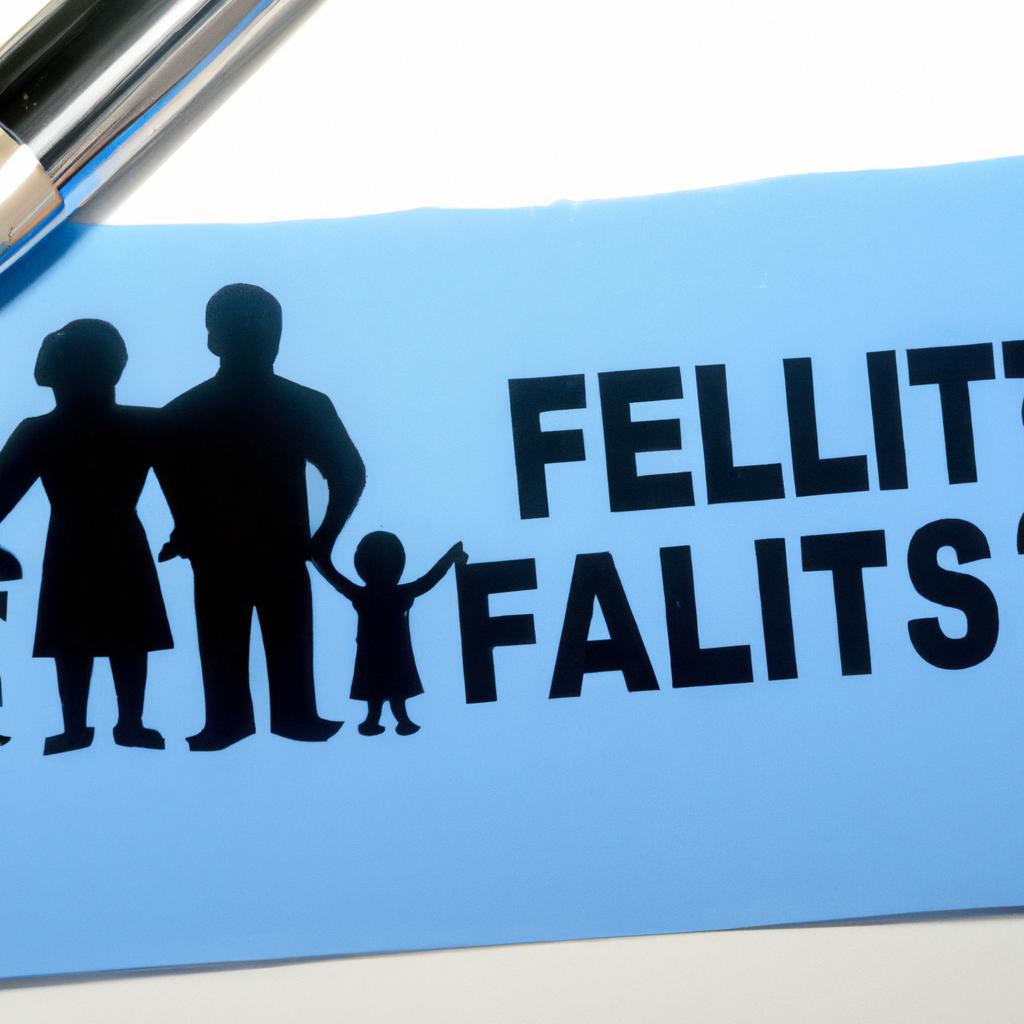As seasoned professionals in the field of estate planning, the Morgan Legal Group has encountered countless cases where individuals face the decision of whether or not to leave family property to their children. While this may seem like a natural inclination for many, we have seen firsthand the potential pitfalls and complications that can arise from such well-intentioned gestures. In this article, we will explore the reasons why you may want to reconsider leaving family property to your children and the alternative options available for ensuring a smooth transition of assets.
Risks of Leaving Family Property to Children without Proper Planning
Leaving family property to children without proper planning can lead to several risks and complications. One of the main issues is that without a clear and legally binding will or trust in place, there can be disputes among family members over the distribution of the property. This can not only lead to strained relationships but also costly legal battles that can deplete the value of the property.
Another risk of not properly planning the transfer of family property to children is the potential for the property to be subject to creditors’ claims. If a child has debts or faces financial difficulties, the property could be at risk of being seized to satisfy those debts. By establishing a trust or incorporating asset protection strategies, you can safeguard the property from such risks and ensure that it remains in the family for future generations.

Preserving Family Harmony through Thoughtful Estate Distribution
When it comes to estate planning, many people assume that leaving family property to their children is the right thing to do. However, this decision can often lead to conflict and discord among family members. In some cases, siblings may disagree on how the property should be divided, leading to resentment and even legal battles. By carefully considering your options and distributing your estate thoughtfully, you can help preserve family harmony for future generations.
One reason why leaving family property to your children may not be the best choice is that it can create unequal distributions among siblings. This can lead to feelings of unfairness and resentment, causing rifts in the family that may be difficult to mend. Instead of leaving family property to your children outright, consider setting up a trust that specifies how the property should be managed and distributed. This can help prevent disputes and ensure that your wishes are carried out in a fair and equitable manner.

Protecting Family Assets from Potential Challenges and Legal Issues
Leaving family property to your children may seem like a natural choice, but it can come with a host of potential challenges and legal issues that could jeopardize the assets you have worked hard to acquire. By not leaving family assets to your children, you can protect those assets from:
- Creditors: Without a direct inheritance, creditors may have a more difficult time accessing your assets to satisfy any outstanding debts.
- Divorce: In the event of a divorce, assets not directly inherited by your children may be considered separate property and therefore not subject to division.
- Tax liabilities: By carefully planning your estate and utilizing trusts, you can minimize the tax liabilities your children may face upon inheriting your assets.
Ultimately, by not leaving family property to your children, you can ensure that your hard-earned assets are protected and distributed according to your wishes. Consulting with an experienced attorney, such as Morgan Legal Group in New York City, can help you navigate the complex legal landscape of estate planning and establish a solid plan for protecting your family assets for generations to come.

Considerations for Designating Beneficiaries in Estate Planning
When it comes to estate planning, many individuals default to leaving family property to their children. However, this decision may not always be in the best interest of your loved ones or your assets. It is crucial to carefully consider the implications of designating beneficiaries in your estate plan to ensure that your wishes are carried out effectively.
One reason to consider not leaving family property to your children is to protect your assets from potential creditors or legal complications. By designating beneficiaries outside of your immediate family, such as a trust or charitable organization, you can safeguard your estate from being subject to claims or disputes. Additionally, distributing your assets in this manner can help minimize the possibility of family conflicts or disagreements over inheritance, ensuring a smoother transition of wealth for future generations.
Q&A
Q: Why shouldn’t you leave family property to your children?
A: While it may seem counterintuitive, there are actually several reasons why leaving family property to your children may not be the best decision.
Q: What are some potential drawbacks of leaving family property to your children?
A: One potential drawback is that it can create tension and conflict among family members. Siblings may disagree over who should inherit the property or how it should be managed, leading to strained relationships.
Q: How might leaving family property to your children affect their financial stability?
A: In some cases, leaving family property to children can actually hinder their financial stability. They may become dependent on the property for income or maintenance, limiting their ability to pursue other opportunities or investments.
Q: Are there any tax implications to consider when leaving family property to your children?
A: Yes, there can be significant tax implications when transferring property to your children, including estate taxes and capital gains taxes. These costs can eat into the value of the property and reduce the inheritance your children receive.
Q: What are some alternative ways to handle family property?
A: One alternative is to sell the property and distribute the proceeds among your children. This can help avoid conflicts over ownership and ensure that each child receives an equal share. Another option is to designate a neutral third party, such as a trustee, to oversee the management and distribution of the property.
The Conclusion
In conclusion, while it may seem natural to leave family property to your children, it’s important to consider all the potential consequences. By not leaving property to your children, you may be able to avoid creating rifts and tension within your family. Ultimately, the decision is individual and complex, and requires careful consideration of all the factors at play. Remember, family is not defined by possessions, but by love, respect, and understanding. Thank you for reading.
 Why You Shouldn’t Leave Family Property to Your Children
Why You Shouldn’t Leave Family Property to Your Children
There is a common belief that one of the most significant responsibilities of a parent is to ensure the wellbeing of their children. Parents often prioritize providing for their children, whether it’s through financial support, love, or material possessions. While it’s understandable to want to leave a lasting legacy for your children, there are certain instances where this may not be the best decision. In particular, leaving family property to your children may not always be advantageous for both you and your offspring. In this article, we will delve deeper into the reasons why you shouldn’t leave family property to your children and explore alternative solutions that may better suit your family situation.
The thought of passing down family property to your children may seem like a natural and logical decision. After all, it’s been ingrained in society that leaving an inheritance for your children is a sign of success and good parenting. However, there are several drawbacks associated with this traditional mindset. Let’s take a closer look at some of the reasons why this may not be the best idea.
It Can Create Conflict Among Siblings
One of the most significant issues that can arise from leaving family property to your children is the potential for conflict among siblings. No matter how close your children may be, when it comes to dividing assets, there is always a possibility for disputes and disagreements. This can cause tension, resentment, and even permanently damage the relationship between siblings. While this may not always be the case, it’s essential to acknowledge the potential for conflict and consider alternative ways to handle your assets.
Financial Burden for Your Children
Another downside of leaving family property to your children is the financial burden it may impose on them. Inheriting property also means inheriting all the associated costs, such as property taxes, maintenance, and other miscellaneous expenses. This can place a significant financial strain on your children, especially if they are still building their careers or have families of their own to support. In some cases, your children may be forced to sell the property to alleviate their financial burden, which may go against what you intended for your legacy.
It Can Cause Inequality
Leaving family property to your children can also lead to unequal distribution of wealth among them. This can be problematic, especially if one child has a more significant need for financial assistance compared to their siblings. It can also create a sense of entitlement and privilege among your children, leading to potential family disputes and resentment. As a parent, it’s crucial to treat your children equally and not create any divisions among them.
The Property May Not Be Suitable for Your Children
Not all family properties may be suitable for your children. It’s essential to consider your children’s lifestyle, responsibilities, and financial capabilities before deciding to leave them the property. For example, if the property is located far from their place of work or children’s school, it may not be practical for them to live in. Additionally, if the property is old and requires significant maintenance and repairs, your children may not have the resources or desire to take care of it.
Possible Tax Implications
When leaving family property to your children, there are potential tax implications that you and your children may have to face. In some cases, inheriting a significant asset can push your children into a higher tax bracket, resulting in increased taxes and a lower net inheritance. This could also be complicated if your children live in different states with varying inheritance and tax laws. These factors can add a considerable financial burden to your children and impact their financial planning in the long run.
What Are the Alternatives?
After considering the potential drawbacks of leaving family property to your children, you may be wondering what other options are available to you. Here are some alternatives you can consider:
1. Create a Trust
A trust is a legal entity that allows you to transfer your assets to a trustee who will manage them on behalf of your designated beneficiaries, such as your children. This allows you to control how and when the assets are distributed and provide specific instructions for the trustee to follow. Trusts offer more flexibility and can help prevent potential conflicts among siblings. You can also set conditions for the distribution of assets, such as reaching a specific age or achieving certain milestones in their lives.
2. Early Gifting
If you are concerned about estate taxes or want to see your children benefit from your assets earlier on, you can opt for early gifting. This means transferring the property to your children’s names while you are still alive. By doing this, your children can avoid inheritance tax and potentially benefit from lower capital gains tax in the future.
3. Sell the Property and Divide the Proceeds
If you believe that dividing the property among your children may cause conflicts, selling it and dividing the proceeds equally among your children may be a viable solution. This way, everyone receives the same financial benefit, and you prevent any potential disputes that may arise in the future.
In Conclusion
Leaving family property to your children may seem like the natural thing to do, but it’s essential to consider all the potential implications it may have on your children and family dynamic. The alternatives we have explored provide you with more control, flexibility, and can promote healthy sibling relationships. You have worked hard to build your legacy, so it’s essential to take the time and consider all options before deciding what is best for your family.
Remember, each family situation is unique, and what may work for others may not necessarily be the best solution for you. It’s always advisable to consult with a financial advisor or estate planning lawyer to determine the best course of action that aligns with your overall goals and values. By being informed and making well-thought-out decisions, you can ensure your children and loved ones benefit from your assets in the most beneficial and harmonious way possible.


